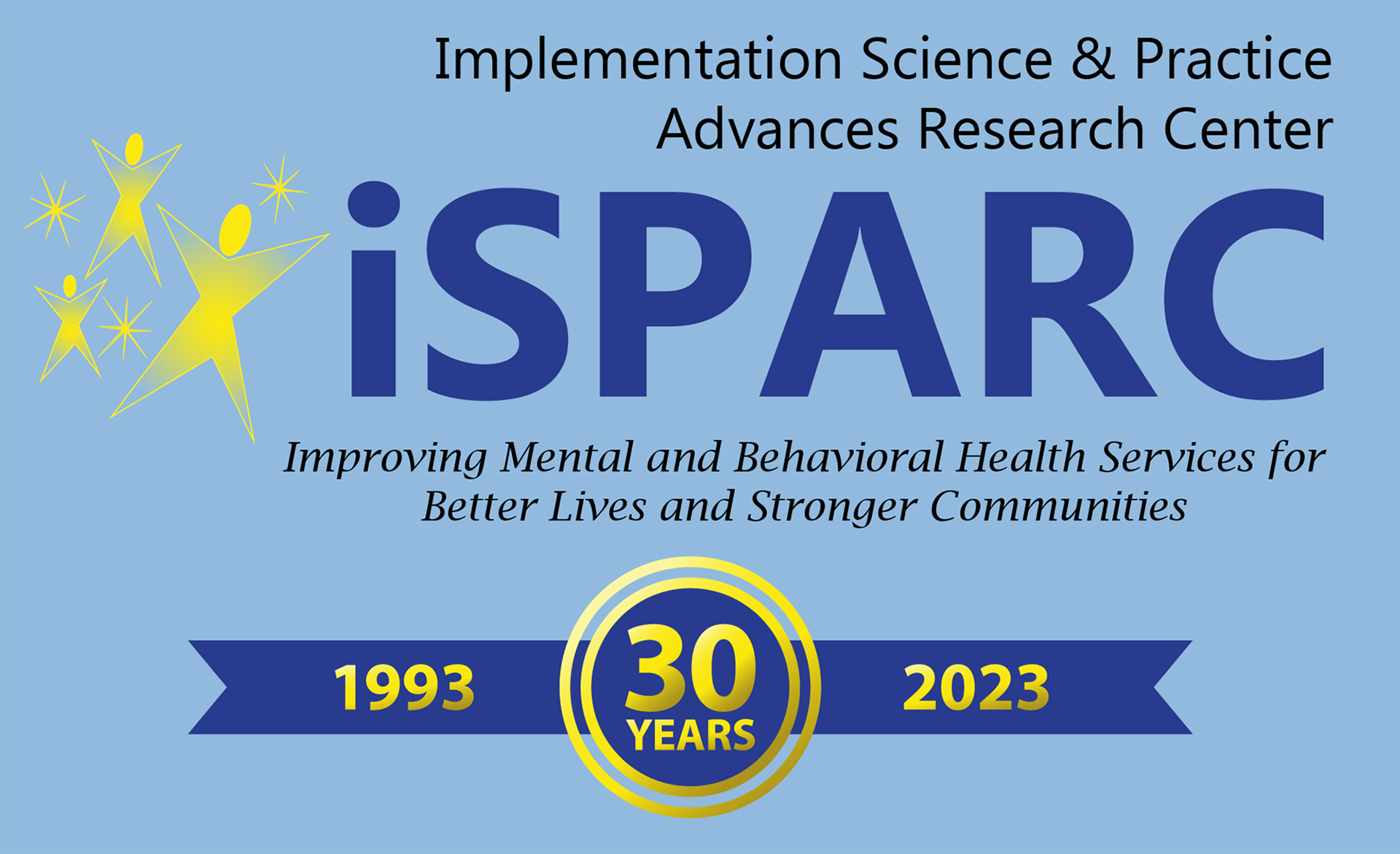- Issue Briefs & Tip Sheets
- Multimedia
- Posters
- Presentations
- Reports, Papers & Manuals
- Annual Reports to DMH
- Products in ASL
- iSPARC Webinar Series
- iSPARC Research Seminar Series
- iSPARC Newsletter
- Additional Languages
- COVID-19 Resources
- Issue Briefs & Tip Sheets
- Multimedia
- Posters
- Presentations
- Reports, Papers & Manuals
- Annual Reports to DMH
- Products in ASL
- iSPARC Webinar Series
- iSPARC Research Seminar Series
- iSPARC Newsletter
- Additional Languages
- COVID-19 Resources
- Implementation Science and Practice Advances Research Center (iSPARC)
- Publications and Products
- iSPARC Research Seminar Series
iSPARC Research Seminar Series
Featured Seminar | Archived Seminars
The iSPARC Seminar Series is a series of seminars featuring leading scholars presenting their research, discussing emerging policy implications, and identifying future directions regarding mental health research. This series will serve as a forum to develop a cross disciplinary dialogue and establish collaboration with the aim of developing methods to improve the mental health of all citizens in the Commonwealth of Massachusetts and beyond.
Featured iSPARC Research Seminar Series
iSPARC & PQHS Research Seminar
Implementation Research for Mental Health Services: A Path to Improving Care
September 30, 2020
Enola Proctor, PhD, Brown School, Washington University in St. Louis, MO
This seminar addresses the needs and impact of implementation science for the field of mental health services. Content includes conceptual frameworks, contextual factors, implementation outcomes and implementation strategies. Challenges in the field include shaping research designs to accelerate translation of treatment discoveries. Resources and training opportunities are described.
Archived iSPARC Research Seminar Series
Forensic Mental Health: Down Under
Dr. Bree Wyeth
![]() View the recording (Audio only)
View the recording (Audio only)
The age of “feeling in-between”: Factors that influence emerging adult outcomes during and after residential substance use disorder treatment
Brandon G. Bergman, PhD
